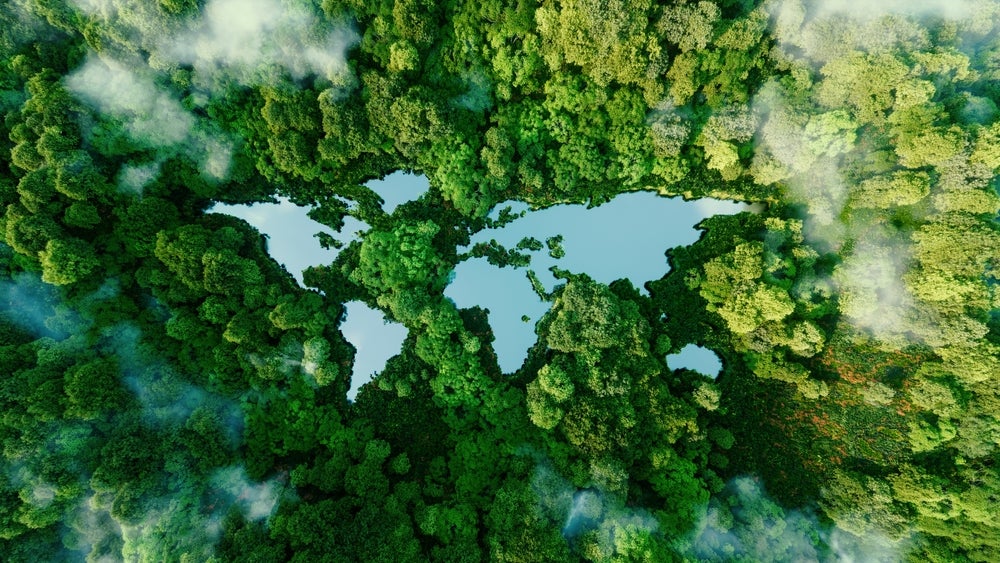
As the world gears up for COP28, the climate summit takes on a deeper significance beyond emissions reduction and policy shifts. It becomes a platform to address the long-standing issue of integrating historically neglected regions into the global financial fold. Particularly in Africa, there is a resounding call for greater inclusion in international financial services, echoing the need for a more equitable and inclusive approach to address climate change.
This forthcoming COP28 is not merely another gathering of nations negotiating climate targets. It is an opportunity to spotlight the glaring disparities in access to financial resources crucial for climate resilience and sustainable development. The Global Stocktake, a critical component of COP28, has already flagged the vast chasm between commitments and realities, especially in regions like Africa.
Don’t miss our coverage of COP28! Subscribe here for exclusive insights & analysis.The imperative to integrate these regions into international financial systems takes centre stage. It is a call echoed not just by governments but also by visionary leaders in business, finance, and civil society. These voices underscore the urgent need to forge robust associations and networks that can bridge this gap, a fact acknowledged by Praxity Alliance CEO, Samantha Louis. Reflecting on the role education can play in bridging the gap, Louis said: “I spent 5 years working very closely with organisations like the South African Qualifications Authority, and I was involved in setting up sector education, in our case for the accountancy profession. At this time, we were actively thinking about how to link the educators and what they’re including into the curriculum with the needs of business to ensure that people who’re exiting education are actually employable from day one.
“After having left this role and joining CIMA, we started to expand all throughout Southern Africa, and then into the whole of sub-Saharan Africa. We opened offices in Ghana and Nigeria, strengthened our links to the communities in Kenya and Mauritius, and worked in Zimbabwe, Zambia, and Botswana.”
How well do you really know your competitors?
Access the most comprehensive Company Profiles on the market, powered by GlobalData. Save hours of research. Gain competitive edge.

Thank you!
Your download email will arrive shortly
Not ready to buy yet? Download a free sample
We are confident about the unique quality of our Company Profiles. However, we want you to make the most beneficial decision for your business, so we offer a free sample that you can download by submitting the below form
By GlobalDataAfrica, with its rich potential for sustainable development and renewable energy sources, demands attention and investment. The continent bears the brunt of climate change impacts while receiving a meagre fraction of the financing it requires. The continent’s potential is underscored by commitments made, such as the UAE’s pledge of $4.5 bn towards clean power in Africa by 2030 and Germany’s financing commitments, including the substantial sum allocated for a green hydrogen project in Kenya.
However, the conversation extends beyond financial pledges. It delves into the mechanisms needed to ensure these commitments translate into tangible opportunities for African nations. Associations and networks poised to advocate for financial inclusivity must take the lead.
Laimonas Noreika, HeavyFinance co-founder and CEO, vocalised the need for a more inclusive approach, pointing to the significance of innovative financial mechanisms like Green Loans. These initiatives offer 0% interest rate loans, fostering low-carbon farming practices crucial for sustainable agriculture and emissions reduction. Noreika said: “It’s disheartening to see the world falling behind on its commitments in the ongoing race against climate change. While it’s crucial to applaud the financial contributions from countries like Germany and the United States, we must recognise that the global effort requires a more inclusive approach.
“Developing countries are disproportionately affected by the consequences of climate change, yet they often lack the necessary resources and support to combat it effectively.
“As it is known, agriculture is a significant contributor to global greenhouse gas emissions, accounting for approximately 20% of total emissions. Leveraging the likes of Green Loans, which provide farmers with 0% interest rate loans, encourages low-carbon farming practices and promotes sustainable investments, enhancing the farmer’s life and improving their global impact.
“We must continue to highlight the value and raise awareness of the innovative initiatives available to help drive forward the fight toward net zero. It’s high time we prioritise a fair and equitable international climate financial system that allocates resources where they are needed most, enabling vulnerable regions to build climate resilience and secure a sustainable future for all.”
The Global Stocktake’s revelation of falling short in climate finance underscores the urgency to recalibrate international financial systems. It’s an opportune moment to reimagine these systems, ensuring they are not just channels for funds but engines for sustainable development and equity.
In the lead-up to COP28, the narrative isn’t just about targets and agreements. It’s about setting the stage for a more inclusive and sustainable future. Associations and networks emerge as catalysts for change, wielding the power to reshape financial systems and provide historically neglected regions, particularly in Africa, with the tools to thrive in a climate-resilient world.
The spotlight turns not just on emissions reduction but on the crucial task of building an inclusive financial architecture that empowers all nations to combat climate change effectively. Associations and networks stand poised to transform rhetoric into reality, ushering in an era of equitable global financial services where no region is left behind.






